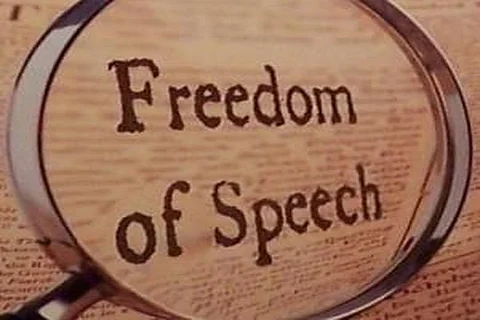
- Home
- Live Blog
- Breaking News
- Top Headlines
- Cities
- NE News
- Sentinel Media
- Sports
- Education
- Jobs

With the arrival of social media, freedom of speech has been more misused than being used. Freedom of speech, as enshrined in the Constitution, is a very important fundamental right. But then, this freedom is not absolute and has certain limitations. The Constitution has granted individuals the right to express their opinions freely. But this right is not without boundaries, especially when the assertion of such a right by way of a speech, a social media post, a book, an article, a song, or a video can incite violence, defame individuals, spread hatred, misrepresent culture and social norms, and so on. Many people forget that while the Constitution guarantees freedom of speech by way of the right to freedom of expression, there are numerous laws, like those related to defamation, sedition, and hate speech, which recognise these limitations. There are “reasonable restrictions” allowed in the Constitution of India on this right. It is important to note that these restrictions are designed in such a manner that they balance the rights of individuals with the needs of society, such as maintaining public order, protecting national security, maintaining public decency, curbing obscenity, and preventing harm to others. In the context of the recent horrible incident at Pahalgam, one where national security and the honour, integrity and sovereignty of the country are also interrelated, a citizen is expected to behave in a decent manner, express patriotic thoughts, ideas and opinions, and condemn the kind of violence which is equivalent to waging a war against the country. Unfortunately, an elected member of the Assam Legislative Assembly – whose honourable members are also called law-makers – had to face arrest for making irresponsible remarks which went against the highest interest of the country. A few other persons too have been arrested in Assam on charges of sedition for passing remarks or expressing opinions in the context of the Pahalgam incident. There are people who want to forget that speech or comments which directly incite or encourage violence, including acts of terrorism, are not protected under the umbrella of the right to freedom of expression as enshrined in the Constitution. Statements that praise or celebrate terrorist acts or organisations can be seen as undermining the rule of law and may be restricted. Moreover, speech, comments or remarks which constitute a direct and credible threat of violence against individuals or groups are not protected.